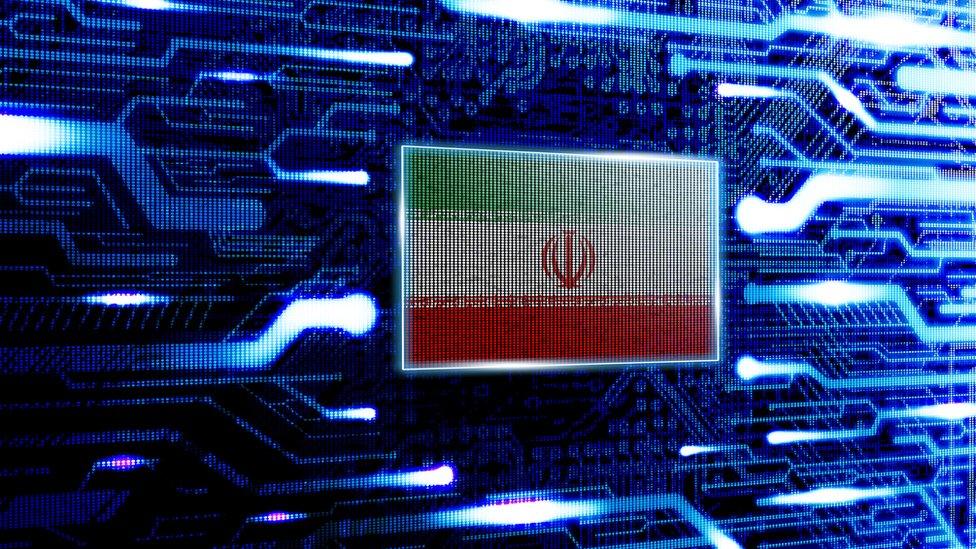Iran protests: Raisi to 'deal decisively' with widespread unrest
- Published
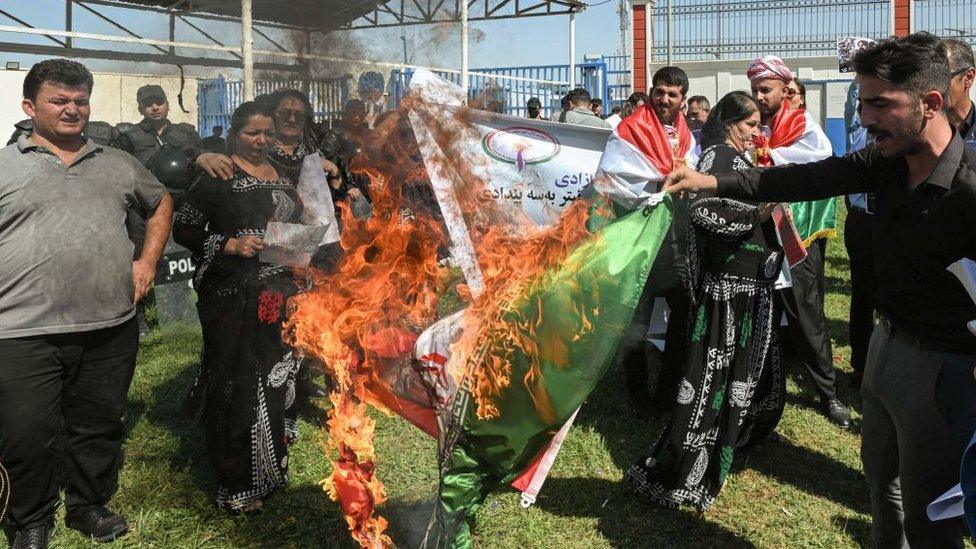
Much of the country has seen protests following the death of a young woman in custody
Iran's president has vowed to take action against protesters after more than a week of anti-government demonstrations.
President Ebrahim Raisi pledged to "deal decisively" with the protests, which have now spread to most of Iran's 31 provinces.
Officials say some 35 people have been killed since protests broke out over the death of Mahsa Amini in police custody.
Clashes continue in several cities.
Ms Amini had been detained for allegedly breaking headscarf rules. Officers reportedly beat her head with a baton and banged her head against one of their vehicles. The police have said there is no evidence of any mistreatment and that she suffered "sudden heart failure".
And while Mr Raisi says her death will be investigated, his Interior Minister Ahmad Vahidi has insisted that Ms Amini was not beaten.
"Reports from oversight bodies were received, witnesses were interviewed, videos were reviewed, forensic opinions were obtained and it was found that there had been no beating," he said.
Videos circulating on social media have captured violent unrest in dozens of cities across the country over the past few days, with some showing security forces firing what appeared to be live ammunition on protesters in the north-western cities of Piranshahr, Mahabad and Urmia.
More clashes in several cities, including the capital Tehran, were reported on Saturday. Demonstrators are reported to be spreading out to avoid congregating in a single place.
New images have also appeared on social media showing protesters hurling petrol bombs at the security forces.
Meanwhile reformist group the Union of Islamic Iran People's Party has called for the mandatory dress code to be repealed and for "peaceful demonstrations" to be allowed.
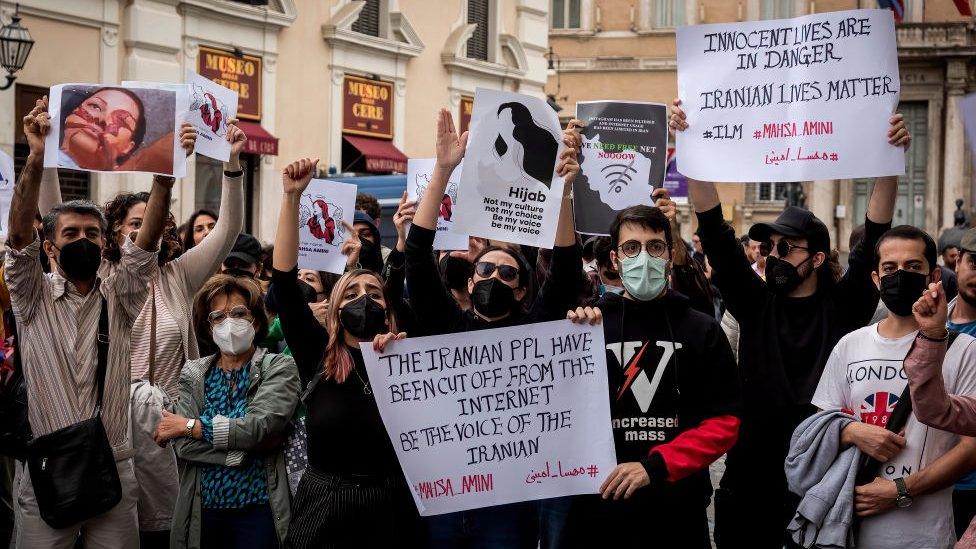
On Saturday people joined protests in several cities across the world including Rome, Athens and Stockholm
Amnesty International has warned that evidence it gathered pointed to "a harrowing pattern of Iranian security forces deliberately and unlawfully firing live ammunition at protesters".
It added that government forces shot 19 people dead - including three children - on Wednesday night alone. The BBC cannot independently verify this.
Mr Raisi has dismissed the protests as "riots". Iran, he said, must "deal decisively with those who oppose the country's security and tranquillity".
Hundreds of people have been detained by security forces, with the police chief in the north-western province of Guilan announcing on Saturday that some 739 people - including 60 women - have been detained in his region alone.
The BBC has heard testimony from some of those arrested who allege they were beaten. One said he was beaten "ruthlessly" before being jailed in a small cell with hundreds of others, where they were deprived of food, water and access to a bathroom.
Government forces have also launched a crackdown on independent media and activists. The US-based media watchdog the Committee to Protect Journalists says 11 journalists have been detained since Monday.
In the western border town of Oshnavieh, sources told the BBC that demonstrators briefly took control of sections of the town from government forces.
Locals told the BBC that demonstrators had seized control overnight and that security forces and government officials had fled, before regaining control on Saturday. Videos posted from the town showed large crowds of people marching through city streets with no police presence, while loud explosions could be heard.
Allow X content?
This article contains content provided by X. We ask for your permission before anything is loaded, as they may be using cookies and other technologies. You may want to read X’s cookie policy, external and privacy policy, external before accepting. To view this content choose ‘accept and continue’.

State media denied the reports, but said protesters had stormed three outposts of the Basji Organisation, a paramilitary associated with the government's Revolutionary Guards.
The US says it will ease internet curbs on Iran to counter Tehran's clampdown on the protests, with Secretary of State Antony Blinken pledging to "help make sure the Iranian people are not kept isolated and in the dark".
How Mahsa Amini became a symbol of defiance in Iran
Related topics
- Published22 September 2022
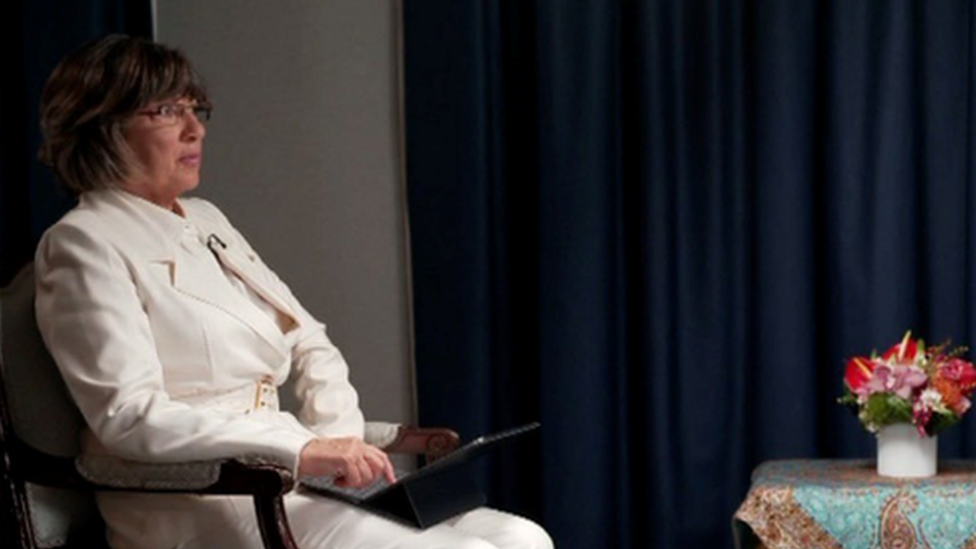
- Published23 September 2022
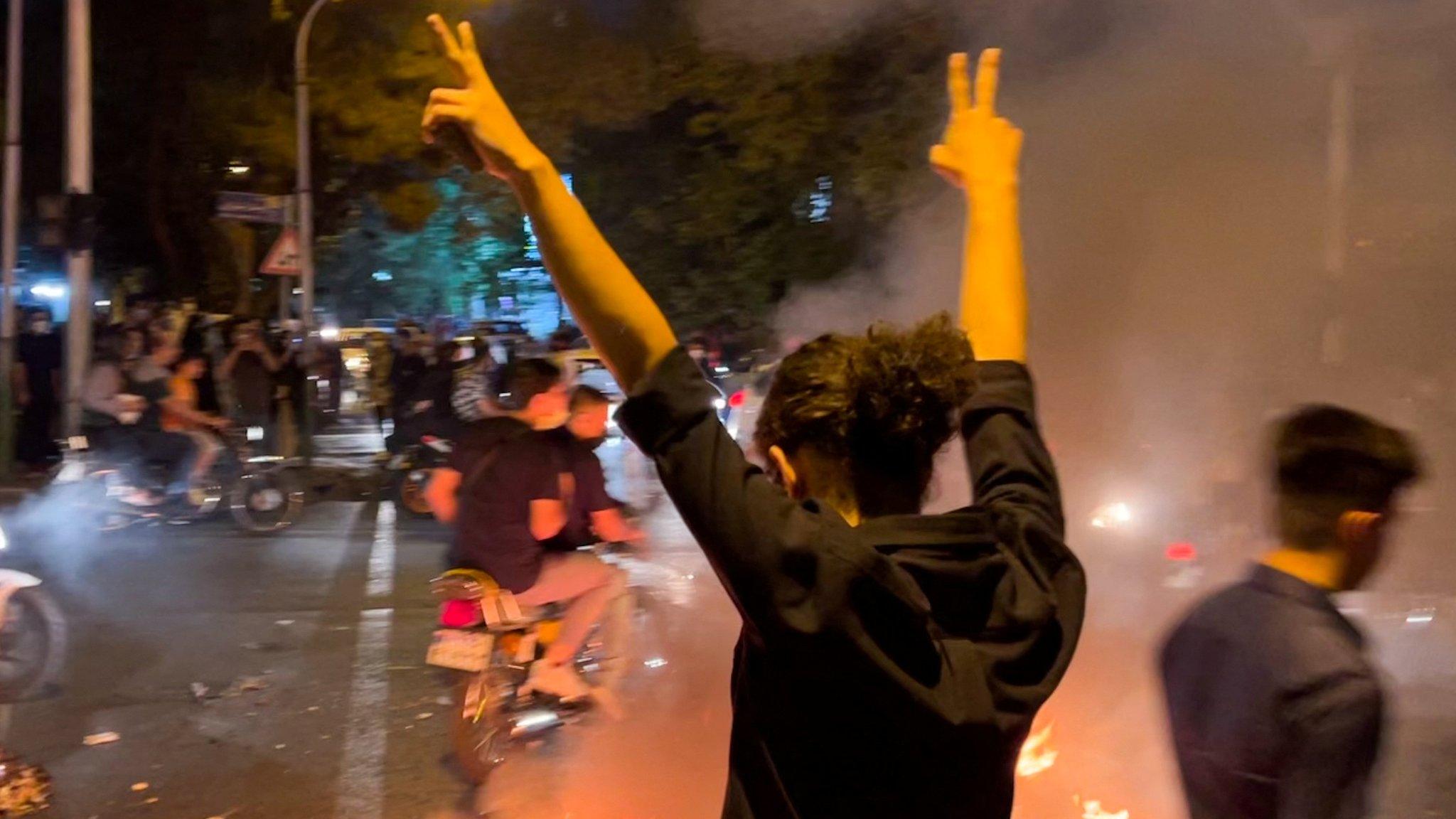
- Published24 September 2022
